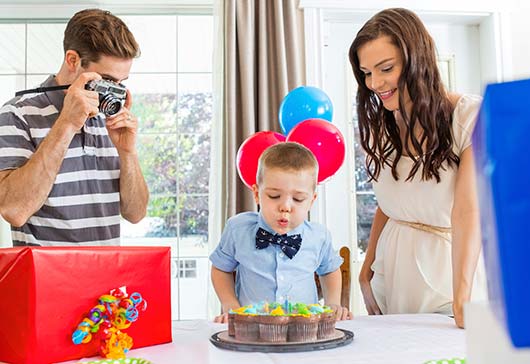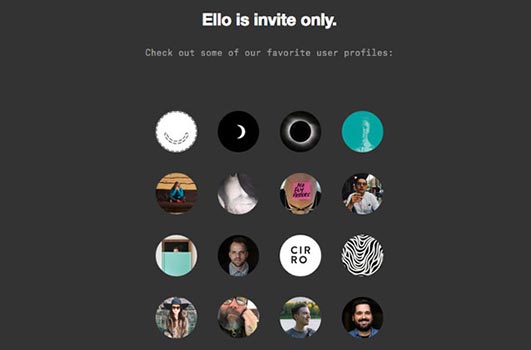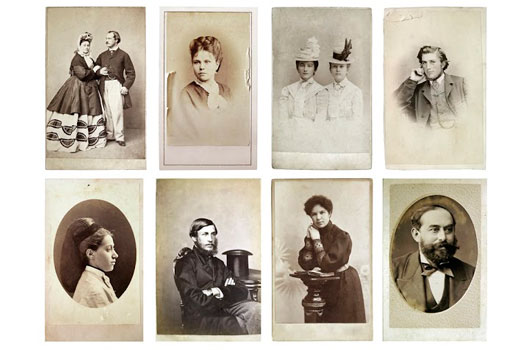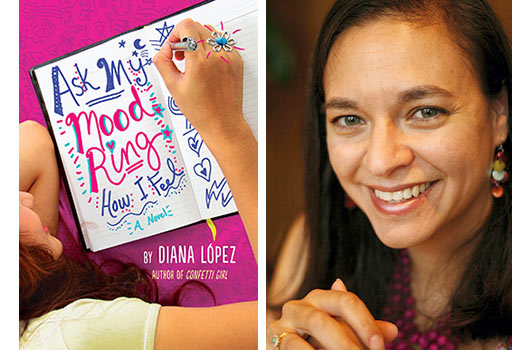
It’s another ordinary day, scrolling down Facebook’s newsfeed, eyeing the pretty pictures. Oh look, there’s a photo of little Luz peering her head out of a SpongeBob costume. And oh, Anita’s sporting her new headset of braces at school today. Aw, look at baby Raul clutching his rubber ducky in the bathtub. He’s as round and bald as a Buddha with a full head of suds…Like!
Is this just harmless social networking fun or are mothers inciting danger by posting images of their kids onto sites such as Facebook and Instagram, which may end up somewhere out there in the Bermuda Triangle we know as the Internet?
Without the proper privacy measures and a prudent approach, parents may be risking cyberbullying, child identity theft, supplying content for child porn, facilitating kidnappings, or entertaining lurking sexual predators with seemingly innocent pixilated images of junior.
The list of possible doom and gloom scenarios, along with our paranoias about cyberspace, are infinite.
Read Related: Phone Apps that Keep Your Kids Safe
In order to get a feel for what is considered good judgment, Mamiverse spoke with some mothers about their experiences—some enlightening and some with a cautionary tale—posting their children’s photographs on social networking sites. Then we spoke to Parry Aftab, one of the leading experts on cybercrime, Internet privacy and cyber-abuse issues, who offered the eight pointers every parent should consider before posting an image of their child on the Internet.
1. Ebelinda is a Gen Xer who lives in New Jersey. She’s a creative director and has two girls, ages six and ten. She joined LinkedIn to keep in touch with her professional contacts and though she has a Facebook account, she never posts a single photo of her daughters. When Ebelinda’s brother-in-law once tagged a photo of her daughters on his Facebook page, she was not happy.
Why?
Ebelinda’s 10-year-old, Kelsy, is a Puerto Rican-Dominican American with aspirations for the White House. “She wants to be the first Latina president, and I need to protect her,” says Ebelinda. Kelsey was once given a pep talk by non other than the former White House Deputy Chief of Staff, Mona Sutphen, about pursuing a career in politics. Ebelinda is safeguarding Kelsy’s digital footprint, adding, “At least I can take the first step toward aiding her career by protecting her privacy during her childhood. That way I won’t have to worry that some media person in the future will go digging into her past.”
Ebelinda says one can’t be too careful when it comes to images on the Internet. There’s always something, even seemingly innocent taken out of context, that could end up “kicking you in the butt” later on, she says. An image as simple as Kelsey making a funny face may taint a politician’s image somehow. A more immediate concern is that her daughter, who she describes as big-boned, may be teased or cyber bullied.
Since that first post, she has kindly asked her brother-in-law and other family members and friends not to post pictures of her daughters. And though her extended family gently poked fun at her at first, they’ve finally come to respect Ebelinda’s point of view.
2. Ana, 32, studied interactive art and technology in New York and now runs a sustainable farm in Colombia with her husband. Her hobby is photography. She posts some of the most breathtaking photos this journalist has ever seen on Facebook, including images of her home, worldwide travels, and especially of her drop-dead gorgeous daughters, a three year-old and a newborn. For those who love to follow Ana’s vivid life, her posts appear on a weekly and sometimes daily basis.
What drives her to post images of her children?
“It’s because I lived abroad many years and my husband’s family and friends are also abroad. It makes everyone follow how much they’ve grown, what are they up to, and what we are all up to. I do feel my friends and family are closer to us thanks to these constant visual aids.”
Ana has a Flickr account and close to 500 Facebook friends. She says she doesn’t want to freak out about privacy settings, and she’s been fortunate to have never received inappropriate comments about her daughters. But she did receive criticism from her daughter’s grandmother about a particular photo she posted.
“She was very offended and worried because I published a Christmas/Hanukkah photo where my older daughter was naked. It wasn’t only grandma, but grandpa and the uncles were also worried…I guess of ‘Internet pedophiles.’ They asked me to please remove the photo, permanently, any trace of it. They where worried they could track us down or something like that. I was surprised, I never thought of it.”
Now well-aware of the dangers, Ana advises other mothers out there to“never, never post a naked photo of your child no matter how innocent you think it is.” Adding, “Giving too much information about your life nowadays makes it easier for someone to track you down.”
3. At 44, this New-York-based non-Latina book publishing professional with a two-year-old son, preferred to remain anonymous. She does not post photos of her son on her Facebook wall and rolls her eyes at those who do. Her photo albums are set to privacy levels that only allow people she trusts to see photos of her son. Despite her caution, she once received a message from a complete stranger that she considered creepy.
Like any proud parent, her profile picture featured a joyful shot of mom holding her son in her arms. It’s one of the most seemingly harmless and ubiquitous images seen on the site, right? Wrong. One day she received an email from Facebook informing her that she had a message. It was from someone whose name she didn’t recognize. “I like your kid,” was all it said.
Her son’s Facebook admirer didn’t include a photo, but from the name she deduced the sender was a male. Whether he had benevolent or malicious intentions this man somehow spotted her friend request page, saw her name, the city she lives in, and decided to send her the note.
“Ick, I didn’t want to know anything about him and immediately deleted the message.” Then she tried hard to convince herself that there wasn’t someone parked outside her home ready to throw her son into a van.
She changed her profile picture to a standard solo shot and is happy to report that nothing became of the incident. In general, social networking sites like Facebook make her nervous, especially since they’re always fooling around with the privacy levels on the site. “I think they can change their policy and do what they want with our photos. And it doesn’t seem they want you to know about it.”
4. Among photos of beaches, sunsets and stilettos, one couple occasionally posts photos of their daughter, who was recently diagnosed with leukemia, on Instagram, a photo social networking site that is growing at warp speed. The photos are accompanied by captions updating followers on hospital visits, conflicting diagnoses, and always with a request for prayers.
The response has been overwhelmingly positive, with one mother thousands of miles away sending good wishes and thanking the couple for reminding her to be grateful that her child is healthy.
The child’s mom has shared a photo of the baby’s doctor and commented on her resemblance to a Hollywood actress. But mostly there have been prayers and support for a little girl whose occasional smiles and laughter have now been digitally chronicled and shared with the world. A day before she is to begin chemotherapy, her father asks for enough time so that his little girl can grow up and “go on a date and drive a car.”
BEFORE YOU POST THAT NEXT PHOTO…
While these four mothers may have completely different views on the pros and cons of posting photos of their children on social networking sites, Parry Aftab’s advice can help you keep from placing them in danger or in embarrassing or awkward moments today or in their future. Here is what she had to say:
All the single ladies…
Mom’s who are cyber dating and hoping to meet the man of their dreams online should be aware that these sites can be fertile ground for predators looking for children to molest. They seek to romance a mother to get to her kids, so keep your kids’ information off these sites.
Bottom line: Best not to talk about your three-year-old son. Period.
Keep your kids’ privacy in mind.
Those pictures of your kids being toilet trained or lying naked on a bear rug could be current or future cyber-bullying material. They may be embarrassing for your kids. And hey, we already embarrass our kids just by being their parents.
Bottom line: What you find cute and charming, may not sit well with your kids in the future.
You just never know how those pictures are going to be used.
There are creeps out there who, by using Photoshop, may take the head of your one-year-old and place it on the body of another child, who is being sexually abused.
Bottom line: Those innocent photographs of your gorgeous child may have creeps out there sweating and sliming over these images.
You don’t want them showing up at your door.
While it’s good to know that Parry has not heard of a case in the United States where a stranger showed up on a parent’s doorstep after seeing a photo of a child on a social networking site, it’s good to be cautious. Sadly, many 11- and 12-year-olds make contact with an adult predator online and go willingly to meet them.
Bottom line: The fact remains that most molestation is committed by a family member or close friend. Still, one of these days, a stranger may show up to someone’s house, and you don’t it to be yours!
And they told two friends, and so on and so on…
Since we’re quoting an old Vidal Sassoon pitch, let’s remind ourselves of the old fashioned saying: “When you sleep with somebody, you’re sleeping with everyone else they’ve slept with.” Same rule of thumb goes for social networking sites and protecting your kids: Your friends and your friends’ friends have access to your child’s photographs.
Bottom line: Limit your privacy settings to Friends Only on Facebook, and think before you post on other sites.
Discrimination and our children…
Parents need to be sensitive about posting photos displaying religious or ethnic markings. Parry warns that there are nuts out there and that people’s biases could apply just as easily to Latino kids. She cited examples of children who are Jewish being reluctant to post pictures of themselves wearing yamakas.
Bottom line: Your children are being judged for what they are and not who they are. Everything is political online.
Kids with special needs…
Be careful about sharing health information, even inadvertently. If your child had a cleft palate repaired or uses a wheel chair, Parry suggests that parents not post photos that make such things obvious. If, for example, a cleft palate is repaired, an adult may not want photos of them as babies lingering on the Internet.
Bottom line: Children are entitled to privacy.
Easy rules to live by.
Let your family and your friends know that no matter how cute they think your kid looks, they need to ask you for permission before posting photos of your children. On Facebook and other social networking sites, it’s best not to friend people you don’t know.
Bottom line: Latinos who come from close-knit or large families can sometimes have a naïve trustworthiness with their family’s friends. Don’t trust as easily and share photos one to one. Or else be sure to use privacy settings where only family and your closest friends can comment on or see your photos.
For more tips, visit Parry Aftab’s website.











